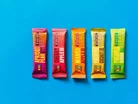Mars takes stake in Kind, the third-biggest snack bar maker worldwide

As consumers move away from sugary sweets and chocolate, Mars has announced that it is buying a minority stake in a maker of snack bars that use ingredients like quinoa and whole nuts.
Mars’ investment in Kind values the company at more than US$4 billion, which is five times its value than three years ago.
SEE ALSO:
- Chocolate giant Mars commits $1bn to fight climate change
- Mars Food agrees to acquire Tasty Bite
- Kellogg to buy protein-bar maker RXBar in $600mn deal
The minority investment marks the latest effort by the chocolate giant to follow consumers’ healthier eating habits.
Mars declined to disclose the financial sum of the investment or its terms.
Kind has been one of the fastest-growing players in the snack field and Mars hopes to bring Kind to new geographic markets and expand into additional product categories.
It is now the third-biggest snack bar maker worldwide by market share, according to Euromonitor, shortly following General Mill’s Nature Valley brand and the Clif bar line of energy snacks.
The data provider also said that sales at Kind rose to US$718.9 million in in 2017.
"This is a partnership built on mutual admiration and a shared vision for growth," said Mars CEO Grant Reid.
"We believe there is tremendous opportunity to build on the success of KIND's product portfolio in new markets. As we continue to expand our business and broaden our portfolio to address evolving consumer needs, we're delighted to partner with a respected leader in the health & wellness space."
Daniel Lubetzky, Founder and CEO of KIND added: "When we introduced our first whole nut & fruit bar in 2004, we set out on an ambitious mission to do things differently and challenge false compromises by offering snacks that were healthy and tasty as well as wholesome and convenient.”
“It's been exciting to see the reach and impact of our mission, and with our partnership with Mars, we're looking forward to continuing on this journey as we empower more people to make healthy eating decisions across the globe.”
Featured Articles
Fresh investment supports TRACT in enhancing tools for sustainability in the food and agricultural sectors, aligning with EU regulations
The devastating floods in Spain have shaken up the global citrus supply, heightening challenges in the fruit juice drinks market
McDonald's has spent 40 years supporting students with scholarships & plans to continue, despite Robert F. Kennedy Jr.’s plan to Make America Healthy Again



